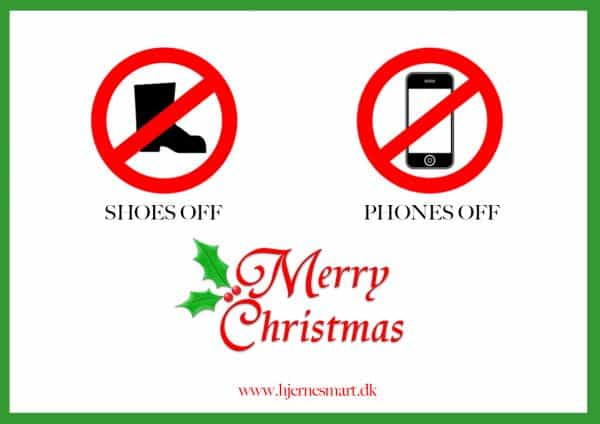
Reduce optional line – strengthen your social skills
We all know what “online” and “offline” is. But do you know about “optional line” too? I coined this word in 2013 to describe the state between online and offline when we have a turned-on phone in our pocket, in our bag or on the table and we could reach out for it whenever we feel like it.
I consider “optional line” (or in short: “optline”) a zombie state because in being optional line we are never fully present. The phone is always an option and an easy way to escape emotions of shyness, nervousness and boredom.
Studies by Andrew K. Przybylski and Netta Weinstein of the University of Essex show us that phones can indeed hurt our close relationships and obstruct intimacy. The two researchers found that simply having a phone nearby, say on the table and without checking it, can harm our attempts to connect with other people. An offline environment, without a cell phone nearby, seems to help foster a sense of closeness, engagement, connectedness, trust, and perceptions of empathy — the building blocks of relationships.
Schools are experiencing the detrimental effects of the optional line created by having mobiles around. Nowadays, about 98 percent of schools in England have rules re mobile phones. They either don’t allow phones on school premises at all or require them to be handed in at the beginning of the day. Studies have also found that especially low-achieving and low-income students gain from such rules. The impact of banning phones was equivalent to an additional hour a week in school for the students (or a five-day increase of the school year).
Companies are increasingly realising that optional line drains focus, productivity and basic respect. A greeen energy company I work for frames many courses and meetings as “offline why computers and phones will remain turned off in the bags”. They realise that people are wasting each others’ time when they are doing something else than paying attention to what is going on. By the way, humans can’t multitask even though we tend to believe that we can. A mere 2 percent of us can do two things at a time without dropping performance.
Personally, I have invited friends and family to offline social events for approximately two years: Offline birthdays, offline Christmasses, offline special time etc. Phones are welcome on flight mode or muted in the hall. Once you step into the living room, you are offline. I suggest that we start treating social rooms with the same respect that we show physical room: We will typically take off our shoes before entering someone’s living room. As a comment to the debate re optional line, I made this sign. Feel free to print it out and put it up on your wall (and please remember to let me know how people around you reacted to it).

Best wishes from the sociologist, and true believer in meaningful conversation,
Anette
Sociologist (MA) Anette Prehn is a prolific keynote speaker, trainer, and bestselling non-fiction author, who has inspired hundreds of thousands across the planet, since establishing her business in 2005.
Anette Prehn is on a mission to make neuroscience available to all, i.e. easy to understand, remember and apply. She has worked in the field of NeuroLeadership since 2009 and has taught the rules of the brain to leaders and employees since, thus strengthening their leadership, learning, habit change, cognitive flexibility, and mental health.
Highly skilled at explaining complex ideas in down-to-earth and accessible language, and impossible to pigeonhole, Anette Prehn has developed techniques that make it easy for people to turn their brain into an ally rather than an opponent. The Framestorm® method, that is patented and trademarked, teaches people to flip and widen their perspective, thus paving the way for innovation, emotion regulation and making the most of whatever life throws at you.
In 2018-2019, Anette chaired The National Stress Panel, established by six Danish cabinet ministers. The panel comprised 10 experts and was tasked with identifying 12 actions to radically influence the stress level experienced in Denmark in recent years as well as to engage the Danish public in understanding what stress is and does and how mental health can be strengthened.
Her clients include Maersk, GN Group, Grundfos, Danfoss, Siemens, Bosch, Ericsson, Roche, Lego, Novo Nordic, Man Diesel and Turbo, Nordea, Danske Bank, 40+ Danish municipalities and 100+ educational institutions and schools.
She has written more than 20 books and mini books, among these "BrainSmart Leadership" and "Play Your Brain".
Throughout these many years, her clients have been powerfully inspired to apply neuroscience to work situations, but they have also asked her::
“How do I more specifically apply the logics of the brain to parenting?” and “I can see my kids gaining from knowing this as well. What’s the best way to introduce them to these tools?”
Being the mother of two and the stepmother of two, those questions got Anette Prehn going.
She therefore started adding to her portfolio how parents, teachers and nursery nurses can become more BrainSmart, thus nuturing environments that help kids learn, thrive and regulate emotions relevantly.
In her Brain Friends series, she is sharing with children and teenagers how to strike up a friendship with their brain rather than being at the receiving end of its impulses and habits.
Contact Anette by email:

